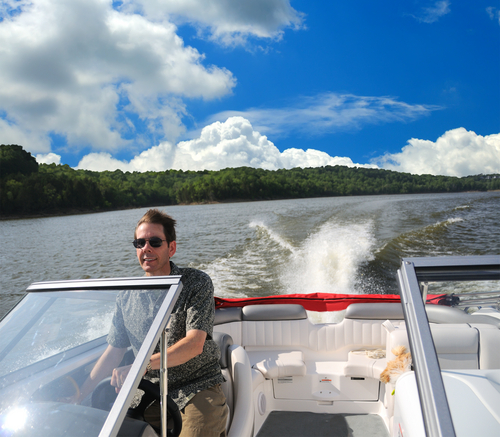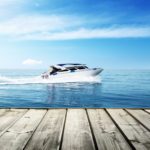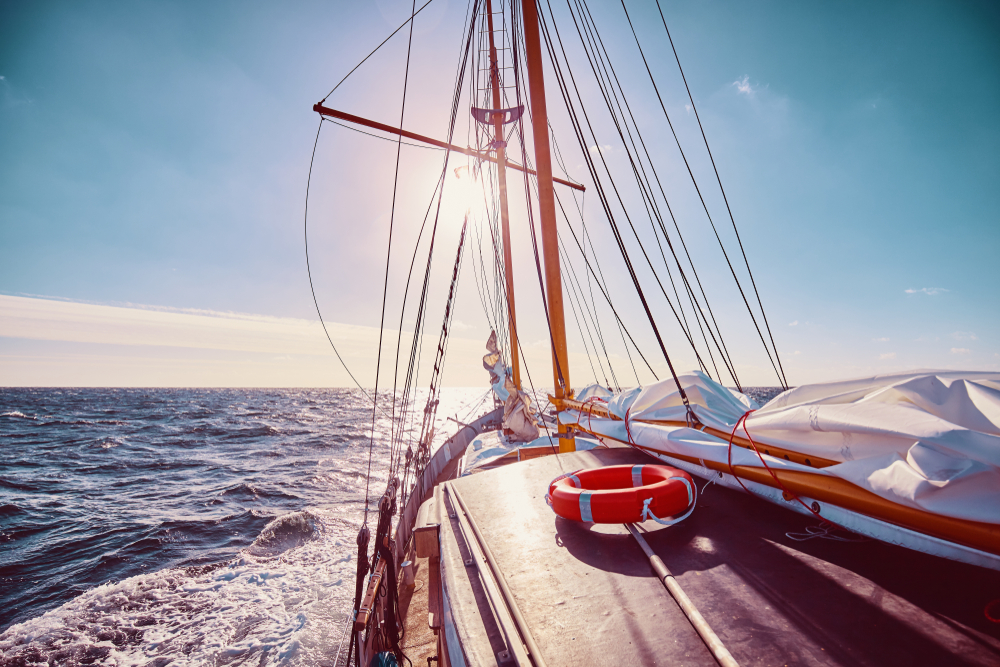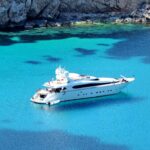Sailing is your dream, on your boat a few metres long, and you look enviously at the yachts moored in the marina, looking amazing with their aerodynamic shape or imposing with their two twin hulls.
Would you be tempted by this incredible sailing boat sailing out of the harbour, and what if the skipper doesn’t have a boat licence?
Driving a boat without a licence, or how to make your dream of sailing come true?
Actually, not having a boating licence doesn’t really hold you back, even if caution is vital and a priority.
You can therefore consider driving a boat without having a licence. But be careful, it is by no means a question of hiring a motor boat or sailing boat and declaring yourself fit to sail, without having previously taken all the necessary safety measures, one of which is (of course) to follow theory and practical training.
What does the law say about driving a boat without a licence?
In France, the legal procedures for sailing without a boat licence are clear and relatively simple, although they sometimes depend on the common sense of those who apply them.
As such, the boat licence is mandatory for sailing on all motorised recreational boats with engine power of more than 4.5 kW, i.e. 6 horsepower, whether at sea or inland waterways.
As a reminder, at sea, the inland waters are below the baseline, the geographical boundary that separates the submerged space of a coastal State such as France, from the maritime space. Beyond this line, we speak of territorial waters. Inland waters also include all freshwater ways such as a river, lake, pond, canal, river, etc.
Knowing that a boat can be equipped with a sail and an engine with power of more than 4.5 kW, it is defined by the law as a sailing boat if it operates mainly with the force of the wind (sailing), with the engine then only having a secondary function (manoeuvres in the port).
Sailing on a sailing boat is therefore not something you make up as you go along, and it would be totally irresponsible to do so without doing some basic training. So, before you choose your sailing boat (purchase or rental), you must register at a sailing school.
Driving a boat without a licence and no risk!
Before putting an option on renting or purchasing a boat (sailing boat), boarding a boat and sailing without a boat licence would be totally irresponsible without doing a minimum amount of training.
In order for your process to be positive, you should be aware of your sailing abilities: you’ve never set foot on a sailing boat, or you know sailing boat vocabulary and how to handle its equipment somewhat without having enough practice. This helps to set limits to your knowledge.
Knowing the theory of sailing will never be enough to sail safely, you need to add a good amount of practice. So to do a training course, we recommend that you ask the French Sailing Federation (Fédération Française de Voile), or your national sailing body.
There are a few special cases for driving a boat without a licence
Depending on the passage plan, and still if your boat’s engine is less than 4.5 kW, you need to know a few special cases in which you need certain documents or where you have to take specific action for your boat.
⦁ Demasting your sailing boat:
The inland waterways belonging to the DPF (Domaine Public Fluvial) have mainly been entrusted to VNF (Voix Navigables de France) (Law No. 2012-77 of 24 January 2012). They are thereby recognised to be of public interest in terms of commercial navigation and by prefectural decree, VNF issues a Special Police Regulation (RRP), which sets out the navigation conditions (by itinerary).
The boat’s driver is expected to be aware of this RPP and, having been informed of these conditions, they may sail without a licence on board their sailing vessel, if it is demasted.
⦁ Obtain a certificate that serves as authorisation to drive
On inland waterways that have a “low hydraulic hazard”, a boat licence is not required as long as the sailor has a certificate that authorises them to drive a boat. This certificate is issued by the charterer (hirer) for sailing a boat you don’t stay overnight on that’s shorter than 5 metres, or a boat you can stay on with a length between 5 and 15 metres.
The same applies to inland waterways, defined as a enclosed surface a boat cannot leave while on the water.
⦁ Equip your boat with a VHF marine radio beyond 6 nautical miles
Since Division 240 was revised, sailing without a license beyond 6 nautical miles requires having a VHF marine radio on board. For this purpose, the sailor without a boat licence must have the RROC (Restricted Radiotelephone Operator Certificate), at least for sailing in international waters.
Please note that some European countries, such as Croatia, require a boat licence to sail if you are not the owner of your boat.
In France, you can sail without a licence if your boat meets the requirement: either an engine that does not have power of more than 4.5 kilowatts (6 hp), or an engine like this, but the sail force remains the main source of energy when it is moving.





